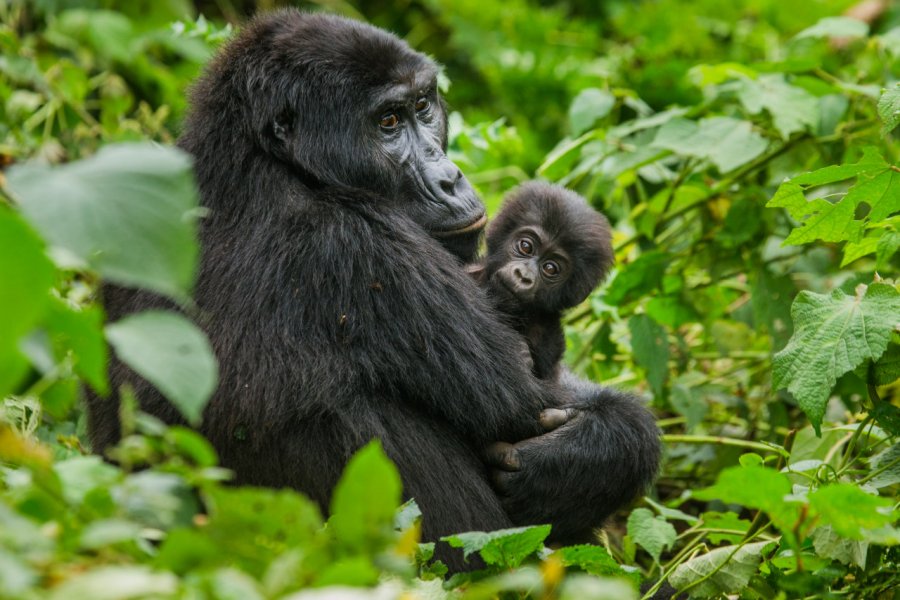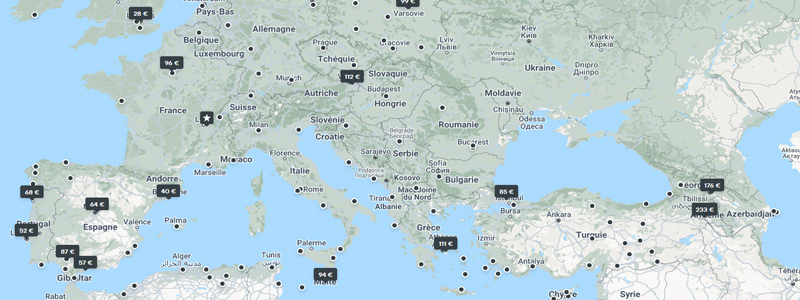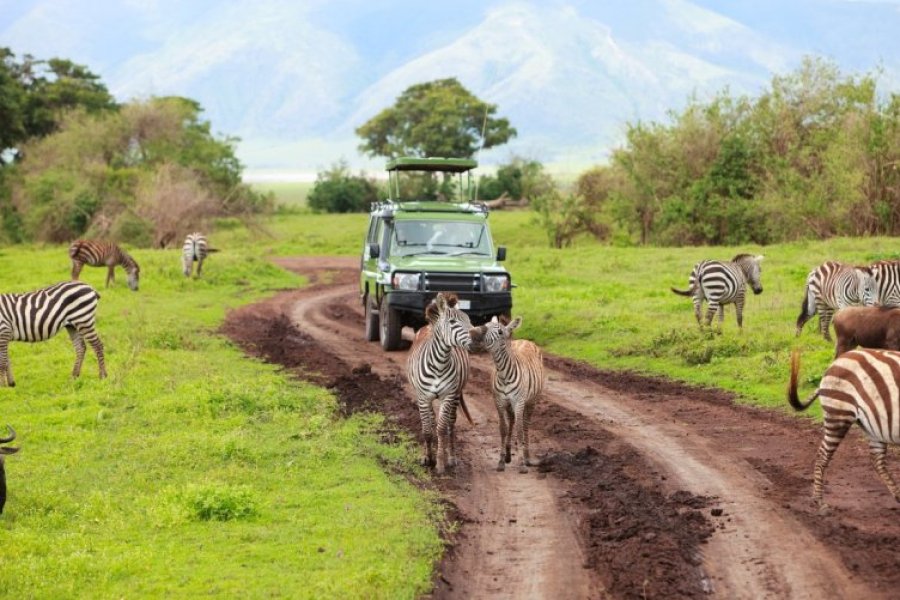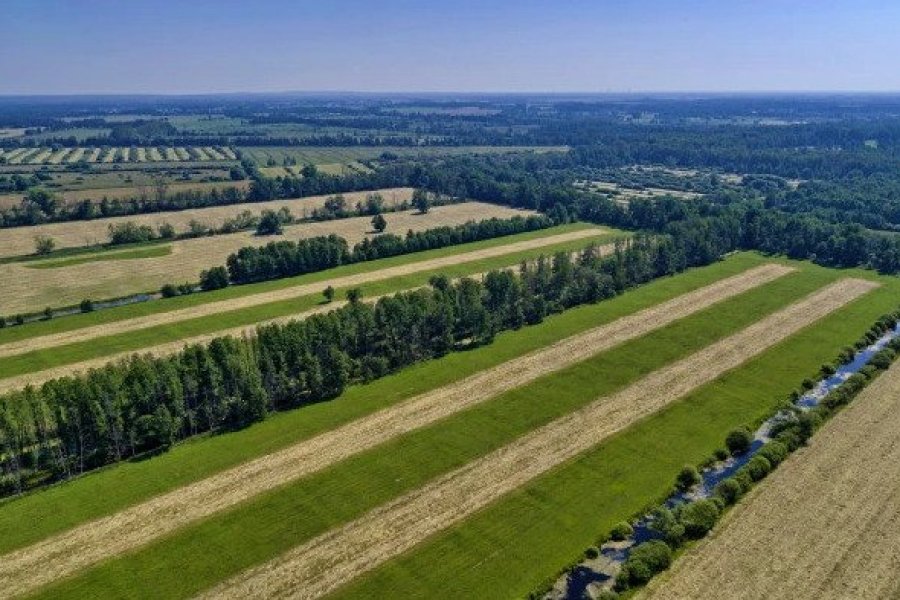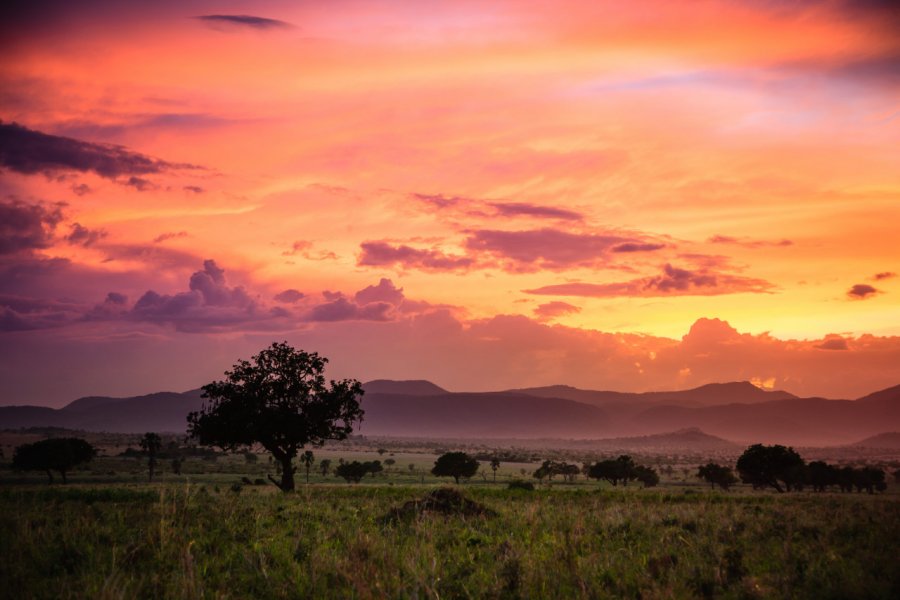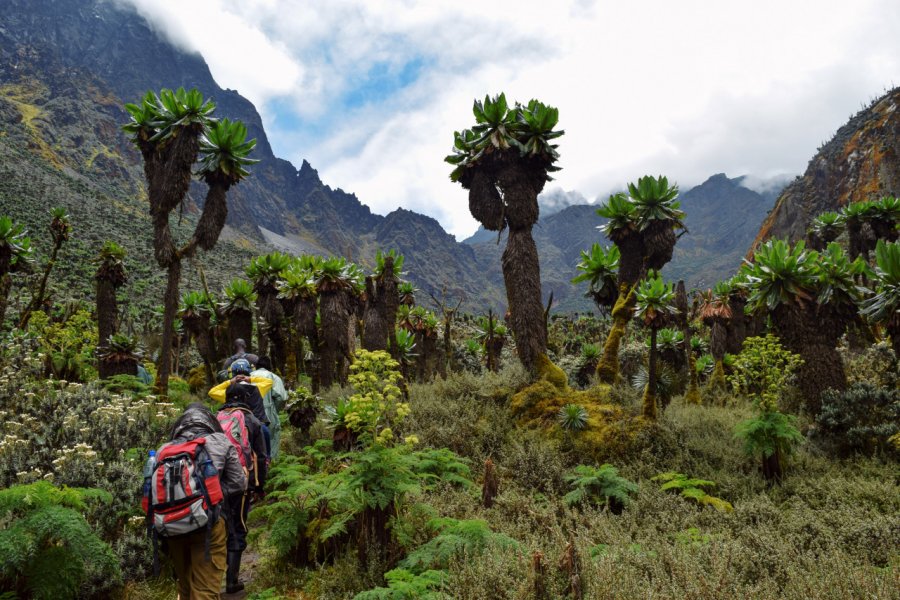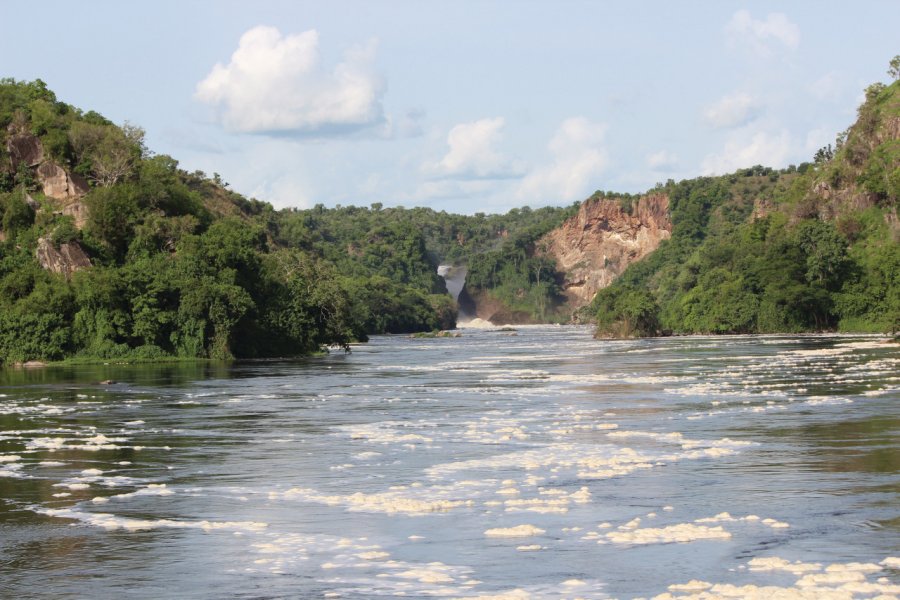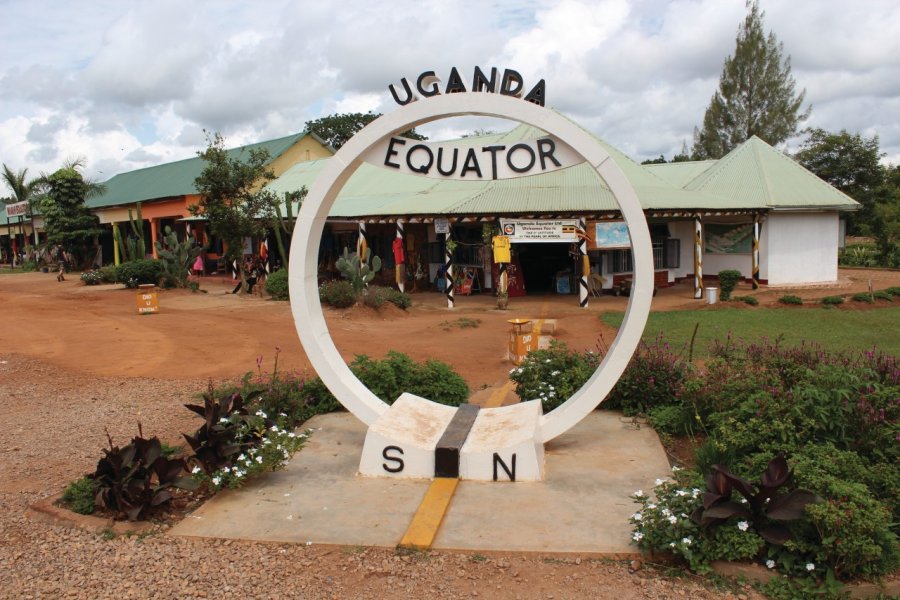Travel guide Uganda
In the heart of East Africa, landlocked between Kenya, Tanzania, South Sudan, Rwanda and the Democratic Republic of Congo, Uganda is unique in that it lies at the crossroads of two exceptionally rich worlds: the equatorial forest of Central Africa and the savannah of East Africa. It is certainly the beauty of these landscapes, with a profusion of wild animals and a flora as luxuriant as it is varied, that led Winston Churchill, more than a century ago, to say that Uganda was in his eyes "the pearl of Africa", a statement that any aspiring traveler around Lake Mutanda or in the Murchison Falls National Park will soon confirm. The Uganda travel guide will take you to the four corners of this splendid territory, from the vertiginous peaks of Virunga and Rwenzori to the rapid rivers of the Nile that you can raft down, from the island of chimpanzees to the vibrant Kampala, the Ugandan capital and its feverish party nights! We cannot mention Uganda without mentioning the silver-tailed mountain gorillas, which we will have the opportunity to meet in their natural environment, not without emotion, in the heart of the impenetrable forest of Bwindi, not far from Rwanda. The other advantage of a stay in this country is that it is a destination still little known by the French-speaking tourism, ensuring the adventure, while being a very safe country, and even very welcoming! Webale kuja mu Uganda ("welcome to Uganda").
What to see, what to do Uganda?
-
Book an activity
-
Customized travel
- The most beautiful cities Uganda
When to go Uganda ?
When to go to Uganda? Generally speaking, the best time to go to Uganda, even if it is more pleasant to travel in the dry season (easier trekking, better visibility of the wildlife, less mosquitoes, more practicable tracks...), is the wet season. The months of the dry season correspond to the period of the school vacations in Europe, the tourists are more numerous and the prices are higher. Birdwatchers and photographers in search of great lights looking to know when to go to Uganda will generally prefer the rainy seasons, i.e. from March to May and from September to November. Temperatures are also very pleasant throughout the year.
Suggested addresses Uganda
Travel Uganda
-
Find a hotel
-
Car Rental
-
International e-SIM package
-
Find a local agency
Il y a 1 001 séjours possibles en Ouganda ! Vos goûts, vos attentes, la durée et les dates de votre voyage ainsi que l'état de votre bourse seront déterminants dans la préparation de votre itinéraire. Outre les deux suggestions ci-dessous, une multitude de séjours thématiques est envisageable. Ainsi, il est possible de se focaliser sur les primates (gorilles, chimpanzés, singes dorés...), de se polariser sur les sensations fortes (rafting sur le Nil, voire nuitée sous tente au milieu de la brousse et de ses fauves...), de se concentrer sur l'avifaune (l'Ouganda est un véritable paradis ornithologique), de se ruer sur les montagnes (trekking dans les massifs du Rwenzori, des Virunga ou de l'Elgon) ou de se fondre dans la population pour découvrir l'Ugandan way of life... Espérons que les pages de ce guide vous aideront à élaborer ou trouver le séjour vous seyant le plus. Quoi qu'il en soit, nous vous souhaitons un excellent voyage !
Find unique Stay Offers with our Partners
How to go Uganda
How to go alone
The price of a return flight to Uganda (Entebbe airport) from Europe, knowing that there is no direct flight from France, varies between 900 € and 1 100 € (first prices) in high season and between 400 € and 800 € (first prices) in low season. To get good rates, it is essential to get there (very) early. By showing the same sense of anticipation for your accommodation, you will also make substantial savings.
How to go on a tour
East Africa is a well known area for tourism providers, because of the numerous safaris that can be organized there. So much so that there is no shortage of all-inclusive offers in the catalogs of tour operators and specialist agencies. You will certainly be able to find the formula that suits you best for your stay in Uganda: honeymoon in a luxurious eco-lodge in the middle of the jungle, family stay, guided tours in the national parks..
How to get around
Domestic flights are not well developed. The most economical way to visit Uganda is by large buses that provide regular connections between the major cities at very reasonable rates. The road network in Uganda is of uneven quality: the tarred roads linking the main cities of the country are generally good, notwithstanding some potholed segments, but many tracks are impassable during the rainy season.
Featured articles Uganda
Discover Uganda
Getting ready to leave for Uganda? Great idea. Is your bag packed? Perfect! Now all you have to do is discover the many facets of this fascinating country! In the following pages, you'll find answers to all your questions: what are the national culinary specialities? What sports do the locals love? What are the must-see cultural events? What are the main climatic characteristics of the country's various regions? Which contemporary artists are worth discovering? What are the economic challenges facing the Ugandan state at the start of the 21st century? What are the key dates in the history of the "Pearl of Africa"? Which animals are emblematic of this part of the continent? What religions are practiced by the natives? And so on ! We hope you enjoy reading.
Pictures and images Uganda
The 12 keywords Uganda
1. Boda-boda

The term, which comes from the English border to border, was coined in the 1960s to designate the bicycles that enabled people to cross the Ugandan-Kenyan border without needing a visa. Although mopeds have now replaced bicycles, boda-bodas remain a unique, economical and practical means of getting around traffic...
2. Coffee

With its temperate climate and high altitude land, Uganda has ideal conditions for coffee growing. Coffee beans are the country's main cash crop. Robusta coffee is mainly grown in the Central Region, while Arabica grows in the coffee fields on the slopes of the Elgon and Rwenzori rivers.
3. Crane
The country is teeming with establishments whose names include the word "skull"... But then, what does this skull mean? Well, it is simply the English name of the national bird, the crowned crane, a beautiful and tall wader that appears as an emblem on the standard and that you will certainly have the opportunity to observe near some water points.
4. Game drive
A gamedrive, otherwise known as a safari, is a 4x4 excursion in the national parks. Game refers to the game in these reserves, but Ugandans like to play on the randomness of game in the sense of "game". The idea behind game drives is to cover as many tracks as possible to observe the wildlife.
5. Gorillas
They're the big stars of the country! Of the thousand or so mountain gorillas in the world, almost half are found in Uganda. The authorities are doing their utmost to preserve these great apes through tourism and the payment of a US$800 permit (their population has increased by almost 70% in 30 years).
6. Idi Amin Dada
General Idi Amin Dada is Uganda's most infamous figure. A megalomaniacal and bloodthirsty character, he controlled the country from 1971 to 1979, leaving behind him several hundred thousand dead and an exhausted economy. Died in 2003, he came back to the forefront with the film The Last King of Scotland (2006).
7. Matatu

Synonymous with collective taxis throughout East Africa, matatus are minibuses that provide urban and interurban transport. Very economical, matatu trips are also an excellent way to meet the local population. Striked out with slogans, these vans offer a real urban spectacle!
8. Matooke

This term refers to both green bananas (similar to plantains), which are suitable for cooking, and the thick purée that is prepared with them. Matooke is truly the staple of the Ugandan diet. In Luganda, tooke means banana (plural: matooke) and, by extension, the word has become synonymous with food. To your forks!
9. Muzungu
In the plural, bazungu. Swahili word for Westerners and whites in general. Tourists are often referred to in this way. Even if it's not pejorative, the term can sometimes irritate. But play along. It could turn out to be a great opportunity to bond!
10. Nil
The Nile begins its descent towards the Mediterranean from Jinja! This assertion, made in the 19th century by the British explorer Speke, is of course considered true by Ugandan tourism professionals... but much less so by geographers who believe that the river's sources are in Rwanda and/or Burundi...
11. Posho
A basic element of traditional cooking, posho is a paste made from corn flour mixed and thickened in boiling water. Posho is used like bread and is eaten with the fingers. It is made into a dumpling with which the vegetables are collected. Very consistent, even filling, the posho will satisfy even the biggest appetites!
12. Waragi
This term comes from the English word war gin, used by British expatriates in the 1950s and 1960s. It refers to any beverage distilled in an artisanal way and made from manioc, bananas, millet or cane sugar, depending on the region. The bottles of Uganda Waragi are marketed by East African Breweries.
You are from here, if...
You're a football fan. Watching the games, broadcast or rebroadcast over and over again in many bars, restaurants and hotels, is indeed the national sport! The English Premier League teams are the most followed and supported. Arsenal seems to be the most popular club...
You eat your posho the way it should be eaten - with your fingers... You enjoy a meat skewer(muchomo) in a pork joint and sipobushera in the company of locals.
You take public transport - minibuses, buses and trucks... And don't forget the boda-bodas, on whose saddles the women willingly sit in amazon and the men astride...
You haggle over the price of your fare(special hire, boda...) and the price of your groceries (at the market)...
You cross a Kampala street, threading your way through the incessant flow of vehicles and out of the (rare) crosswalks...

